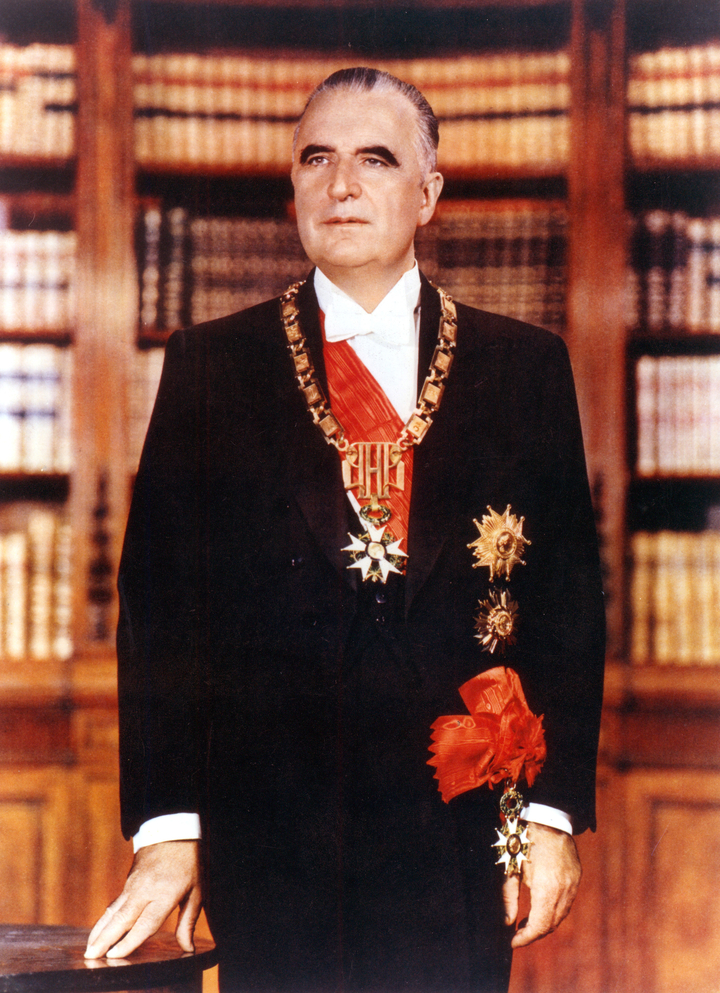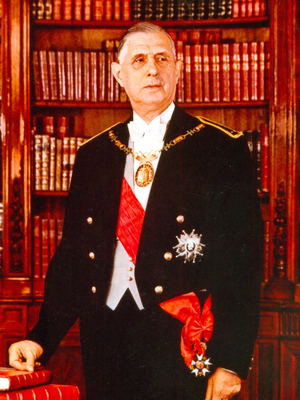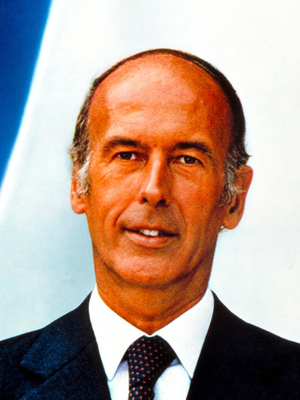
© La Documentation française. Photo François Pagès / Paris-Match
5 July 1911
George Pompidou was born in Montboudif, in the Auvergne Region to two schoolteachers.
His father began his career working in the Department of Cantal and later in the city of Albi teaching Spanish, where the future President would conduct all his studies through secondary school and obtain the top award of the prestigious academic competition, the Concours Général, in Greek-French translation. He would remain very committed to his family’s origins and would constantly refer to values of the Republican school: “Honesty and work; respect for merit and virtues of the mind”.
1931
He was admitted to the École Normale Supérieure after a two-year preparatory course at the Lycée Louis-le-Grand in Paris. He also studied at the École Libre des Sciences Politiques (which later became Sciences Po), and developed strong friendships, particularly with Léopold Sedar Senghor, who would become the first President of the Republic of Senegal.
1934
He came in first in the high-level competitive exam for recruiting teachers in humanities (agrégation) and was awarded a Master of Arts.
1935
He married Claude Cahour.
1935-1938
He worked as a teacher at Lycée Saint Charles in Marseille.
1938-1940
He worked as a teacher of preparatory classes for the grandes écoles at the Lycée Henri IV in Paris.
1940-1944
He was an intelligence officer in the 141st Alpine Infantry Regiment.
He also worked on a critical edition of Britannicus.
September 1944
Appointed special assistant for national education in the Private Office of General de Gaulle, President of the Provisional Government of the French Republic. He forged close ties of friendship and trust with him.
1946-1949
After General de Gaulle left office, he joined the Conseil d’État but remained one of de Gaulle’s close advisers with a view to a future return to power.
1946-1949
He was the Director of the Tourism Board.
1948 à 1953
He was Head of General de Gaulle’s Private Office.
1954-1958
He worked at Rothschild Bank.
June 1958-January 1959
Director of Général de Gaulle’s Private Office, where he would play a key role in preparing the new Constitution of the Fifth Republic and stabilizing the economy before entering the European Economic Community.
1 June 1959-7 January 1962
He was President of the Constitutional Council.
1961
He published an anthology of poems with a long forward. He was the non-official spokesperson for General de Gaulle in negotiations with Algeria’s National Liberation Front (FNL).
April 1962-July 1968
He was Prime Minister.
April 1969
Proposals for regionalization and reform of the Senate are rejected by referendum, which caused General de Gaulle to resign.
15 June 1969
Georges Pompidou was elected President of the Republic.
December 1969
The Hague Summit, which re-established collaboration between the six founding members of the European Community, defined the conditions for negotiations with the United Kingdom, began the Economic and Monetary Union and outlined political cooperation.
February-March 1970
He made his first official visit to the United States, which sent a strong diplomatic signal amid the Cold War. He met with President Richard Nixon three times. At their meeting on December 1971 in the Azores, they set out together the main lines of a global monetary reorganization, unfortunately this did not produce lasting outcomes.
Political, monetary and trade differences (Middle East relations with the USSR) culminated in the oil crisis at the end of 1973 and France’s refusal of a comprehensive agreement of oil consuming countries in February 1974 in Washington.
Five meetings were held in five years with the USSR, which was led at that time by Leonid Brezhnev.
1973
Pompidou’s physical strength started to diminish from the disease Waldenstrom Macroglobulinemia.
2 April 1974
Georges Pompidou died while in office after only four years and nine months.
His epitaph reads: “Happy peoples are not noted in history, I therefore hope that historians do not have much to say about my term-of-office”.
Qui était Georges Pompidou ? | Archive INA
Inauguration of the presidents of the Republic

also available
Presidents' biographiesUpdated : 14 December 2022

